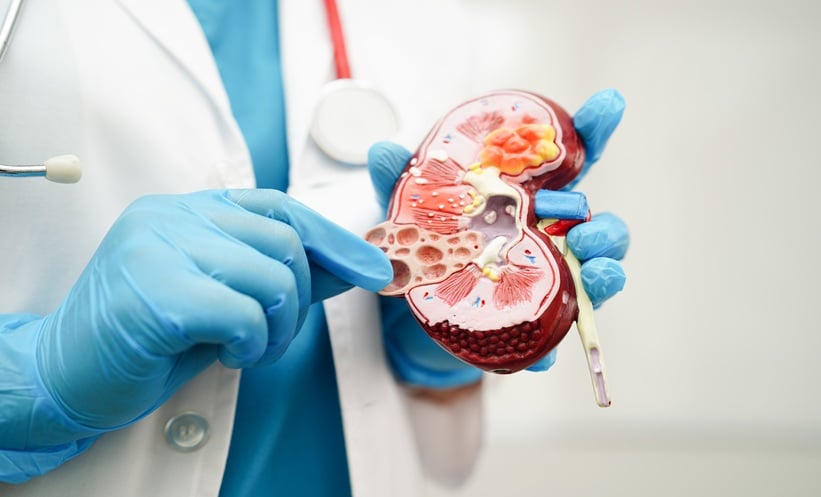KAPOSI sarcoma-associated herpesvirus (KSHV) is widespread among HIV-positive kidney transplant patients and donors in the United States, but KSHV-related disease remains rare, according to new research. This study provides important reassurance for clinicians navigating organ transplantation in the era of the HOPE Act, which permits HIV-positive organ donation.
Researchers analyzed data from three multicenter kidney transplant studies to measure anti-KSHV antibodies using a 30-antigen multiplex assay. The team evaluated KSHV seropositivity and monitored transplant recipients with HIV (HIV R+) for signs of post-transplant KSHV-associated disease (KAD).
KSHV seropositivity was present in 40.6% of HIV-positive recipients, 25.2% of HIV-positive donors (HIV D+), and just 7.5% of HIV-negative donors. Among all factors considered, only male-to-male sexual contact (MSM) was significantly associated with increased KSHV seropositivity—raising relative risk by 51% in recipients and more than doubling the risk in donors.
Despite the high seroprevalence, only five KAD cases were observed among 418 HIV-positive transplant recipients, yielding an incidence of 0.63 cases per 100 person-years. These included three instances of skin-limited Kaposi sarcoma, one case of multicentric Castleman disease, and one case of Kaposi sarcoma affecting the kidney allograft. The allograft case was considered likely donor-derived and occurred in a female HIV D+/R+ recipient, while the remaining cases were likely due to KSHV reactivation or acquisition from the recipient.
The findings suggest that while KSHV is common among transplant candidates with HIV, particularly MSM, the clinical risk of developing KAD is low. The results support continued use of HIV-positive donor organs in kidney transplantation with appropriate risk assessment.
Reference:
Nambiar P et al. Kaposi Sarcoma-Associated Herpesvirus Risk and Disease in Kidney Donors and Transplant Recipients with HIV in the United States. Clin Infect Dis. 2025:ciaf229. [Online ahead of print].








